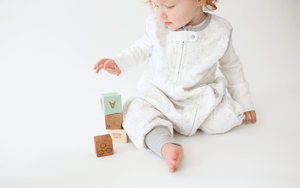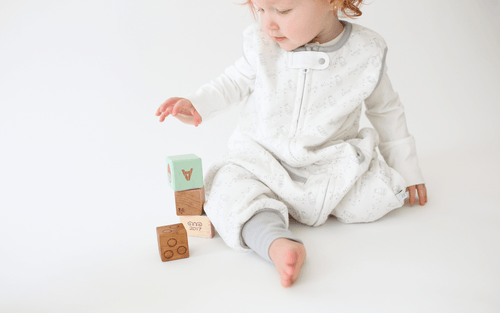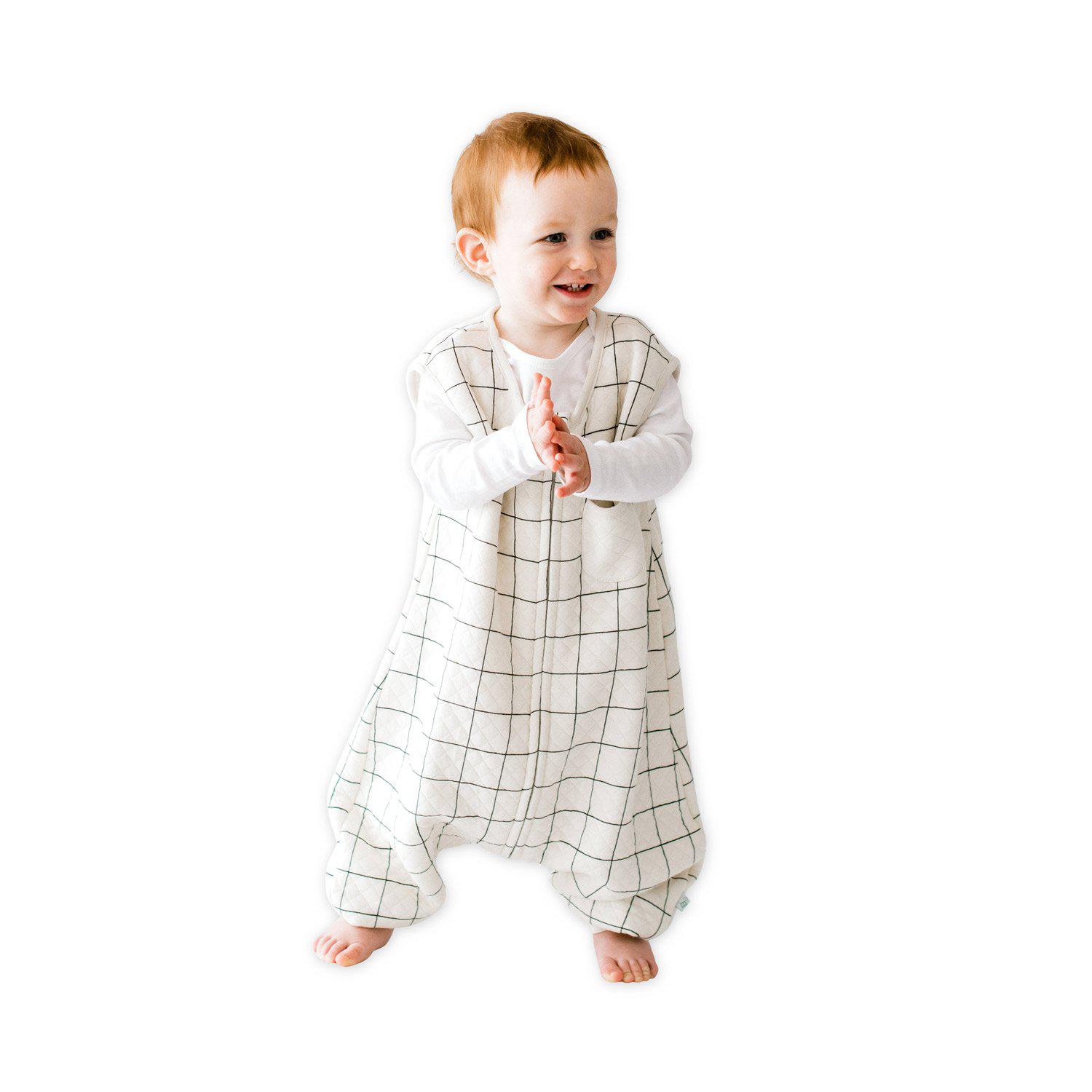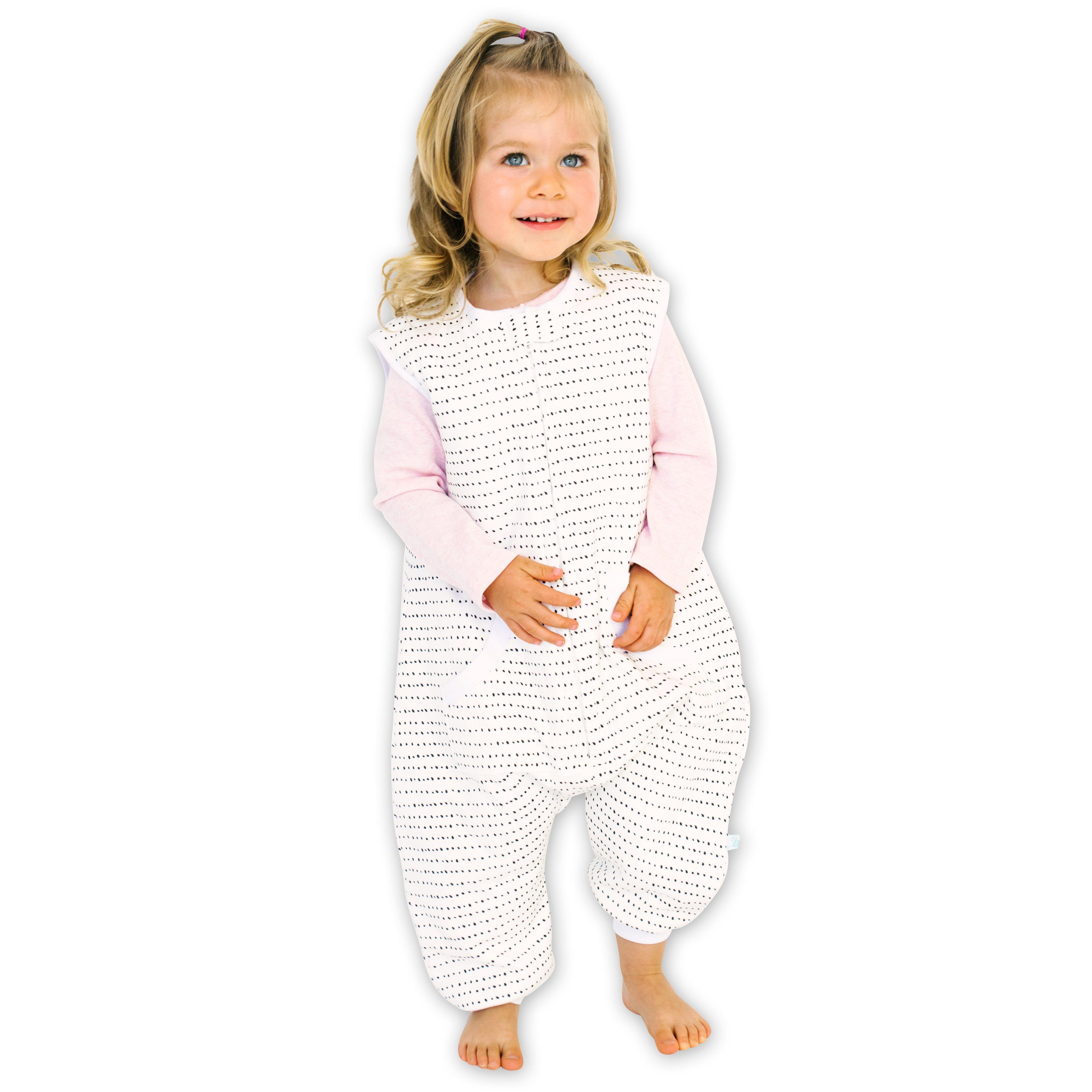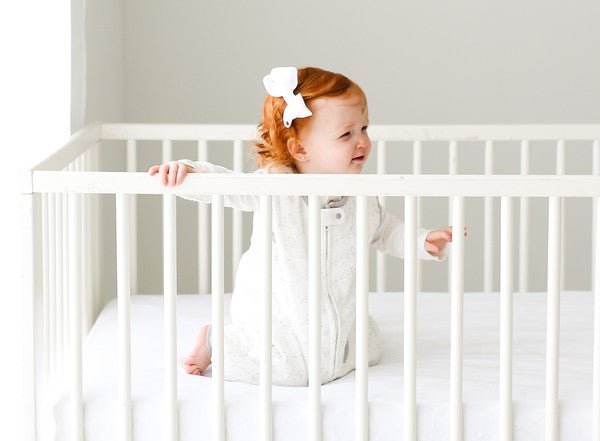4 Baby Sleep Mistakes Parents Make That Hinder Sleep
4 Baby Sleep Mistakes Parents Make That Hinder Sleep
BY: Ashley Bell, Pediatric Sleep Consultant
Parenting takes a lot of decision-making, especially with little ones who can’t make their own decisions yet. Every day, parents make decisions about how to dress, feed, entertain, and generally take care of their children. They also make many decisions about their sleep. Does he need an extra nap today? What time should I put him to bed? What should he wear to sleep? White noise? Darkness? Sleep sacks? Pacifiers? Loveys? … and the list goes on. There are a few decisions that parents commonly make about their child’s sleep in efforts to help, but that actually make things worse.
Here are 4 common baby sleep mistakes that parents make that hinder their baby’s sleep:
1. Using screens to help their child “wind down” at the end of the day.
I’ve had many clients tell me that their child watches a TV show or uses some type of story app to help him wind down before bed. Sure, the child may be really chill while watching it simply because he’s captivated by it.
Parents mistake this quiet captivation for calmness. However, what usually happens after is a bedtime fight. Stalling, fussing, pleading, and not being tired enough to go to sleep.
So, what happened?
While screens may appear to help a child settle down, they actually do the opposite.
The brain is responsible for the production of melatonin, the natural hormone that aids sleep. You want your child’s body to produce this to help him sleep when bedtime comes around.
Darkness is one factor that tells the brain it’s time for sleep. When it is dark, the brain will signal the production of melatonin.
On the contrary, when there is a lot of light, it will tell the brain to stay awake. Screens emit blue light, which is the color that hinders the production of melatonin the most.
When the brain gets the signal that it’s time to be awake, it will produce cortisol instead of melatonin.
Cortisol is the natural hormone that helps a person wake up. So, to break it down, here’s what happens.
When the child views a screen before bedtime, his body thinks it’s time to be awake due to the bright, blue light he’s staring at. Therefore, it tells his body to produce cortisol to help him stay awake. Then, when you go to put him to bed shortly after, his body is now working against him instead of helping him sleep.It will take even longer for him to settle and fall asleep, all because of that tiny little light box of entertainment.
For this reason, I always recommend that my clients have a settling down period at least one hour before bedtime, with no screens or other bright lights. Making this small tweak to a child’s evening can really help bedtime go smoother.

2. Giving the last feeding or snack right before laying baby down for sleep.
When a baby wakes multiple times at night, a parent will do anything they can to stretch it out and get a little more sleep. One of the common mistakes parents make here is feeding their baby right before laying him down in the crib, sometimes even feeding him to sleep.
For older children, this can look like offering a snack right before going to bed. Parents assume that if the child goes to sleep with a full belly, it will help him sleep longer and/or better.
However, laying him down on a full stomach can actually cause more issues, like gas problems, upset tummies, and post-bedtime poops, to name a few.
Have you ever tried to lay down and go to sleep when your stomach is really full? It’s not exactly restful.
Any last feeding or bedtime snack should be done at the beginning of the bedtime routine. It is a complete myth that a baby will sleep longer or harder if fed right before going to sleep.
You actually want your child’s digestion process to begin before laying down to avoid tummy troubles. Also, the sugar content in both milk and the most common kid snack foods will hinder sleep further.
A bedtime snack is not necessary, but if you do offer one to an older child, it should be low in sugar and high in protein. A couple of whole-grain crackers with some peanut butter or a piece of cheese makes a good bedtime snack.

3. Keeping a child up longer in order to help him sleep quicker/longer/deeper.
I do understand the thought process here. I thought it myself as a new mom too.
You hope that by keeping a child up longer and “wearing him out,” it will mean that he’ll go right to sleep, and sleep longer and deeper because he’s so “good and tired.
However, this only results in the child being overtired.
Children can only handle so much time awake before they need more sleep.
We call this a “wake window” or “wake time” in the sleep world. For example, a 4-month-old can only handle about 2 hours awake before he needs more sleep. A 16-month-old child can handle 5-6 hours awake. When a child does not get sleep at the end of his age-appropriate wake window, he then becomes overtired.
Being overtired does the opposite of helping him fall asleep faster and sleep deeply. As I mentioned with the first mistake above, when the body thinks it’s time to stay awake, it will produce cortisol to help him do so.
Therefore, keeping him up longer than he can handle will only make it harder for him to fall asleep when you do put him down.
Over-tiredness at bedtime can also cause more frequent night wakings and early mornings. Wake windows aren’t meant to be a ball and chain, but they are important guides to help make sure your baby is getting sleep when needed.
4. Putting a child to bed late in hopes of him sleeping in later.
It’s easy to assume that a later bedtime will result in a later morning wake-up. Any waking before 6:00am can be considered an early morning waking.
If your baby is consistently waking early in the morning, it can be tempting to put him to bed later to get him to sleep in later. However, it simply doesn’t work like this.
Early morning wakings can actually be caused by over-tiredness.
In this case, an earlier bedtime is actually the way to go instead of a later one. Similar to wake windows, children also have a certain total hours of sleep they should get in a day, based on their age. For example, a 3-month-old needs an average of 14-17 hours of sleep in a 24-hour day. So that includes naps and nighttime sleep. A 3-year-old only needs about 11-14 hours total.
It is important that your child’s total sleep in a 24-hour day meets the age requirements. If he’s not getting enough, an earlier bedtime may be needed.If he is getting enough, and he is still waking early in the morning, then a napchange may be due. Or, it could be due to environmental factors (light, noise, cold, etc.). In any case, making bedtime later will rarely help children sleep in later.
Each mistake above has a flip-side that will help your child sleep.
- Avoid screens and bright lights at least 1 hour before bed.
- Don’t feed your child too close to bedtime.
- Use age-appropriate wake windows to know when your child should sleep.
- Don’t push back bedtime to fix an early morning. Try pulling bedtime forward instead and make sure your child is getting enough overall sleep in a day.
AUTHOR: Ashley Bell, pediatric sleep consultant
